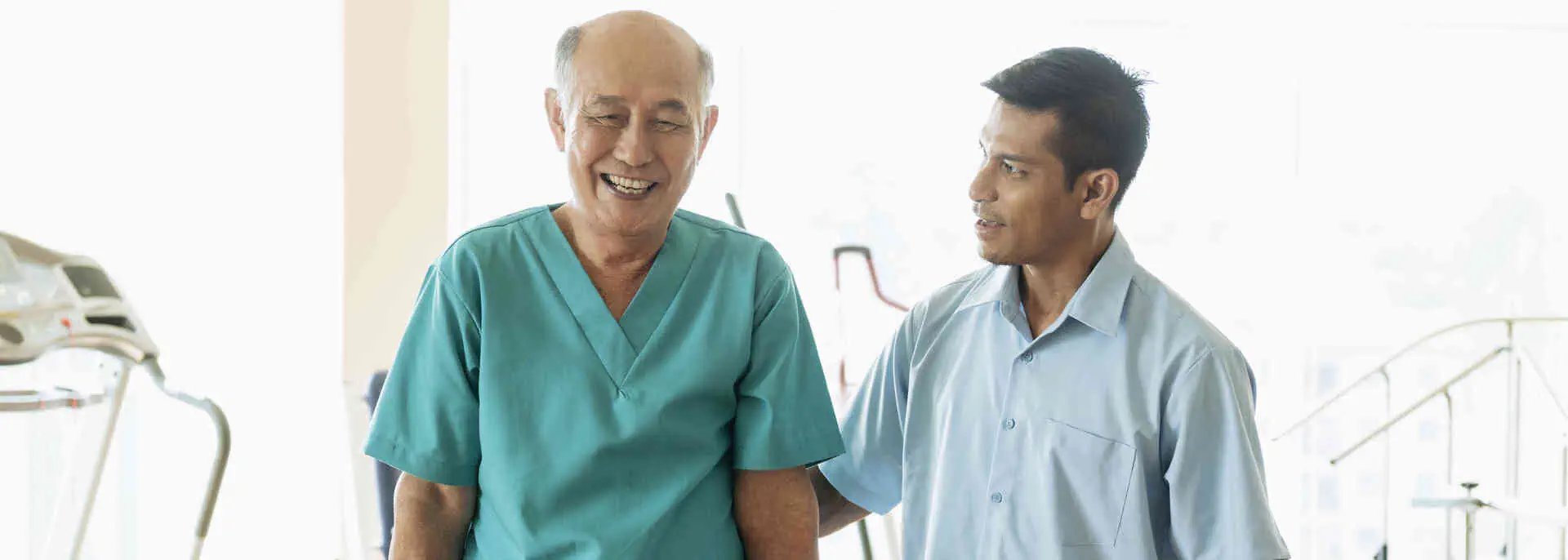The spine is an essential part of the human body. This is because the spine supports our body and helps to keep it upright.
Our spine is composed of vertebrae, which are bones that are stacked one on top of the other, producing columns. In between the columns of these bones, there are spinal discs that absorb pressure and prevent friction in the bones.
However, there is a possibility that these discs get pushed out of their original position, and the tissue protrudes out towards the surrounding nerves. This condition is known as a slipped, ruptured, prolapsed, or herniated disc.

Following are some symptoms of a slipped disc (slip disc):
However, some people may never experience any symptoms and may not know that they have a slipped disc. It is recommended to consult a doctor as soon as you feel pain or notice the first signs of a slipped disc.
A slipped disc can be a result of various factors, including:
People at risk of having a slipped disc include:
Your doctor would first question your general health and symptoms before conducting a thorough physical examination.
Diagnosis is made based on your reported symptoms, physical examination, and investigations.
In addition to these, the orthopaedic specialist may order the following tests:
Ultimately, your diagnosis will be determined by the information gathered from these tests.
The treatment options for slipped discs (herniated discs) range from conservative to surgical.
The doctor will suggest a treatment that caters to the patient’s condition. Needless to say, it will also depend on your level of discomfort, pain, and the extent of the prolapse of the disc.
Medication
The main non-surgical treatment for a slipped disc is taking medication. A doctor may prescribe regular pain killers or narcotics to maintain comfort while the patient is on therapy treatments.
However, for some people, non-steroidal anti-inflammatory drugs (NSAIDs) like ibuprofen may not be the most suitable option as the pain could be too excruciating. In such cases, the doctor may give stronger medications, such as muscle relaxants and nerve pain medications.
Rest and stay active
For those who are experiencing high-intensity pain, it is crucial to get sufficient rest. However, it is recommended to stay active and engage in light physical activity as soon as one is able to. By not keeping active and merely refraining from all physical activity, the patient may increase the chances of more muscle weakness and stiffness in the joints.
Low-intensity activities like walking are highly recommended. Besides that, it is advisable to meet a physical therapist and enroll in an exercise program that stretches and strengthens the back and nearby muscles.
Home remedies
Home remedies like using an ice pack or a warm wet towel on sore areas may sometimes help.
When it comes to slipped discs, surgery is not an immediate option since the pain can be relieved over time with medications and therapy interventions.
Having said that, if the symptoms have not improved despite taking treatments, and the patient finds that the muscle weakness is getting worse, doctors may discuss potential surgery options.
One surgical option is a discectomy, where the portion of the disc which is protruding is taken out to alleviate the pain and pressure forced upon the sciatic nerve. The doctor may replace the spinal disc affected with an artificial one or fuse the vertebrae together in more extreme cases of slipped discs.
If left untreated, a slipped disc may have some potential negative consequences on your life.
There is a possibility of a slipped disc causing permanent nerve damage. This is because the slipped disc could cut and stop the nerve impulses to the cauda equina nerves in both the lower back and legs. In worse case scenarios, a patient may lose the ability to manage their bowel and bladder control.
There is also a long-term complication known as saddle anaesthesia. In this, the nerves or spinal cord are compressed by the slipped disc, causing a loss of sensation in certain parts of the body, like the inner thighs, back of the legs, and the rectum area.
Here are some ways to prevent slipped disc:

If you are experiencing any of the symptoms of a slipped disc, get in touch with us to find out more about our Orthopaedic Services at your nearest Gleneagles Hospital.
If you are looking for the best slipped disc treatment in Kuala Lumpur, Malaysia or other areas, Gleneagles Hospital is your first choice. Gleneagles Hospital works with orthopaedic specialists to assist slipped disc patients through diagnosis and treatment. The caring and multidisciplinary team of healthcare professionals are available for consultation and to provide the best care.

Wait a minute